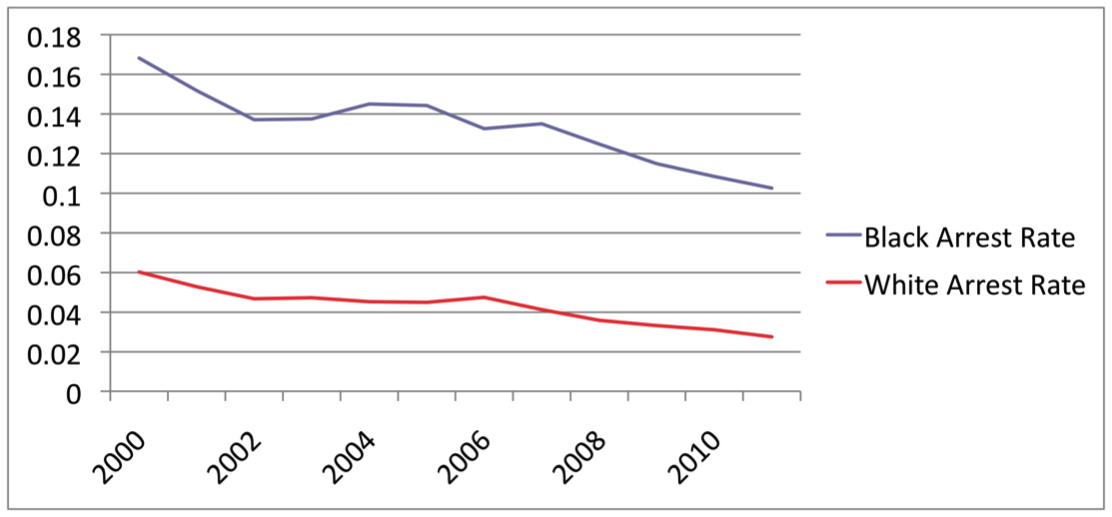Milwaukee Arrests, Part IV: Racial Disparity Story Similar in Chicago, Sort Of
In the first post in this series, I explored the persistent racial disparities in Milwaukee arrests. How does Chicago compare? In a nutshell, the overall disparity rates are remarkably similar in Milwaukee and Chicago, but the War on Drugs drives the disparities to a much greater extent in the Windy City than here.
Let’s start by taking a look at black and white arrest rates in Chicago since 2000:
As is apparent, arrest rates have been coming down for both races, but white rates remain well below black.
Here is what has been happening in Milwaukee during the same time period:


